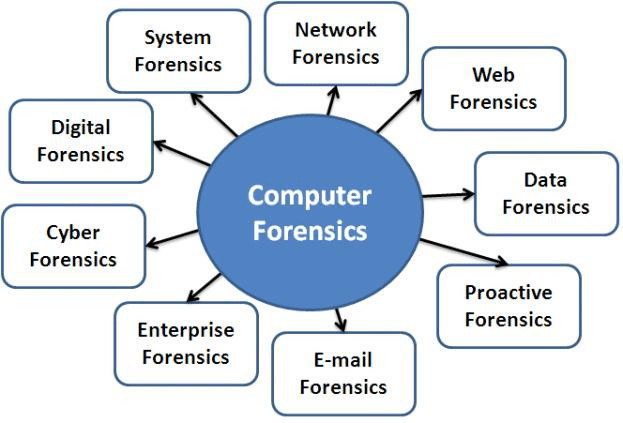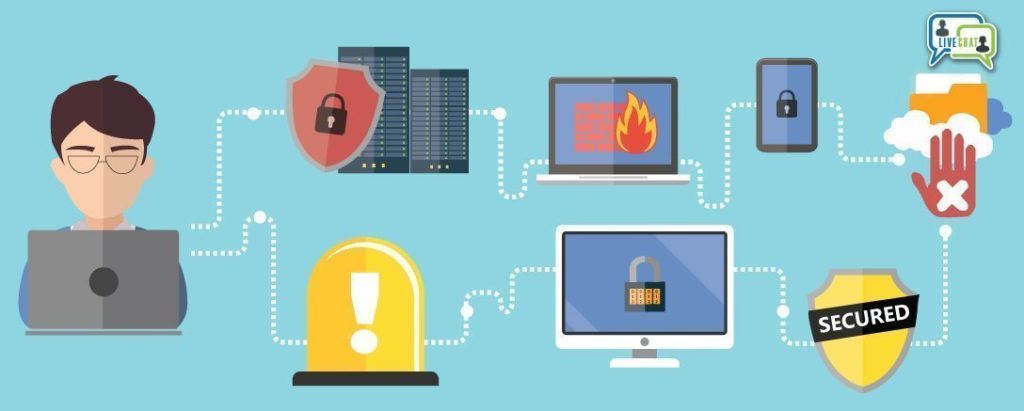There are many people who are good with computers and excited by the idea of being part of an investigation. It’s possible this can happen with a career in computer forensics.
This profession uses the application of investigation and analysis techniques to obtain and save evidence from computer devices. This evidence is gathered in such a way as to be able to be used during court cases and more.
A person who works in computer forensics field will know how to conduct an investigation, so the documented chain of evidence is preserved.
They will be able to determine what was done with a computing device, who used it and other important information.
Computer Forensic Science
The majority of crimes committed today requires the use of computer forensic science to solve.

One of the biggest users of computer forensics is law enforcement agencies. They are often leaders in developing new applications in the field.
Computers are often considered the scene of the crime when it comes to criminal investigations. There is also a need to battle computer hacking and denial of service attacks.
Computers contain a variety of evidence such as internet history, emails, documents and files connected to crimes such as drug selling, murder, fraud, kidnapping and more.
Job Description
A computer forensics professional will be expected to recover and examine data from a computer or other type of electronic storage devices.
This data could be used as evidence in a criminal case. They may have to obtain this data from equipment that is damaged. They will then be required to dismantle the damaged equipment and rebuild the system.
The goal will be to recover any lost data.
Once the data has been retrieved, they will write up a report. This report will detail how the data evidence was obtained and the steps they performed during the process of retrieval. They may be called upon to give testimony in court about the data information and how it was obtained.
Keeping current on the latest technology for the computer forensic field is also part of the job.
They will know how to properly examine a document in a computer and know when it was saved, printed, edited and more. They can be used in cases of intellectual proprietary theft, regulatory compliance, industrial espionage, fraud investigations, forgeries, employment disputes and more.

A forensics investigator will know how to begin an investigation using a designated set of procedures.
They will make certain the computer device is isolated and not able to be accidentally contaminated. A digital copy of the device’s storage media will be made for careful examination.
Once this is done, the device will be put in some type of a secure facility to maintain its integrity.
The investigation will be conducted using the digital copy. The computer forensic science investigator will be able to use a number of different techniques as well as proprietary software to analyze the digital copy.
Their search will reveal evidence of hidden folders, encrypted or damaged files as well as disk space for files that have been deleted.
The information discovered on the digital copy is recorded in a findings report. This is what will be used for legal proceedings, such as depositions, discovery and litigation.
How to Become a Computer Forensics Investigator
Many individuals who want a career in computer forensics develop their skills working on the job in law enforcement or a computer security company. Educational requirements are increasing.
Associates Degree
A person can get an associates degree in computer forensics. They will have to complete courses in general education.
General courses could be technical writing, public speaking as well as algebra.
They will also be required to complete courses in intrusion detection systems, internet law, cybercrime and more.
Bachelor’s Degree
These types of degrees are not common, but their popularity is growing. Individuals in these programs will be required to take general education courses.
They will also be required to take courses in computer operating systems, cybercrime and more.
Part of obtaining this degree is the completion of an internship prior to graduation. There are a number of internship opportunities available for students to gain work experience.
Certificate Programs
A professional certificate program is a popular way to get education in computer forensics for those who are working in the field.
Members of law enforcement, as well as computer security professionals, often enroll in a certificate program.
Many individuals have a background in law or computers but need some additional education to expand their knowledge base.
The requirement for a certificate from these programs varies from one to another.

Certified Information Systems Security Professional
A very common credential in this field is Certified Information Systems Security Professional (CISSP).
Candidates for this exam must have a minimum of four years professional experience or a college degree and three years experience.
A person will have six hours to finish the 250 question exam.
Once this certification is obtained, an individual must complete continuing education credits every three years.
Certified Computer Examiner
This certification is offered by the International Society for Computer Examiners (ISFCE).
Having this certification will require a forensics scientist to have a minimum of 18 months of professional experience. They can also sit for the examination if they are able to properly document their training and pass an online examination.
The candidate for this certification will have to perform a forensic examination on three different types of test media. They will also be a member of the ISFCE once the program is completed.
In order for a person to maintain this certification, they must complete fifty hours of education or training every two years.
An online examination is also required every two years to get recertification.
Job Outlook and Salary
Investigator who work for federal or state law enforcement could begin with a salary of up to $122,103 a year. This salary will increase with time and experience.
Educational degrees and heightened security clearances will also impact a salary.
A person could make more as an expert if employed by a private government contractor.
When working for a private corporation or a consulting firm, a beginning salary can be up to $70,262. The salaries for positions in private companies are larger in the bigger cities.
When forensic experts move up to senior managerial positions within a consulting firm or private company, they can earn up to $191,072 annually.

The work of a forensics expert continues to be in high demand. As the world’s dependence on technology increases, so do the needs for members of this profession.
There are currently a large number of opportunities available in the public and private sectors. The job outlook increases with those who have advanced degrees and job specific certifications.
This profession has been given a rating of A for its larger than average potential future job growth.
Advantages and Disadvantages
The advantage is the ability to search and analyze large amounts of data quickly.
Those who work in the computer forensic profession soon discover it is not as exciting as it seems on television.
They almost never have direct contact with criminals.
They may put in long hours and have the satisfaction of knowing they contributed significantly to helping an innocent person be free, or a guilty person go to jail.
Career Advice and Tips
There are a number of different types of work a person could do in this field, each has different requirements.

Investigator
A person working in this position will be able to recover and analyze computer systems.
They will also be able to investigate the backgrounds of individuals as needed. They will review the information found on computers and other digital devices.
The information can be used to clear someone of a crime or convict them of it. They may work on internal investigations at a business or governmental agency.
Reviewing worker’s computers, they also help to identify any type of data theft.
Some investigators specialize in resolving identity theft.
An investigator will review data to confirm an individual’s identity. They can inform financial institution when illegal transactions have taken place.
They usually work irregular hours.
Much of their work can be done remotely, but they will have to travel to companies, law firms and more to review computer information.
Technician
They are responsible for reviewing digital information related to an investigation. Their work is often conducted in laboratories.
These technicians are trained to analyze computers, video, audio and other digital devices.
Finding data that can assist in the prosecution of potential criminals or uncovering illegal activities in a company are part of their job.
They could enhance recorded phone conversations for identification purposes, manipulate video to focus on a particular item and more.
They are often employed by law enforcement and work irregular hours.
They may have to testify in court, prepare information for trials and more.
Analyst
These computer forensics analysts are responsible for implementing security protocols as well as installing security programs into a computer system.
They will work closely with the information technology departments of businesses and governmental organizations. They are able to create a variety of security programs such as firewalls.
Their goal is to protect a computer system from being affected by some type of virus.
They are also able to create procedures designed to protect and save computer data if it is corrupted or becomes lost. They will often work with the upper levels of management to improve a computer system.
Most analysts work regular full-time hours.
They are usually expected to be on-call in the case of a computer emergency.
